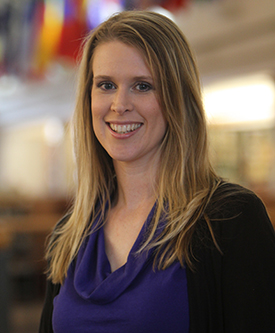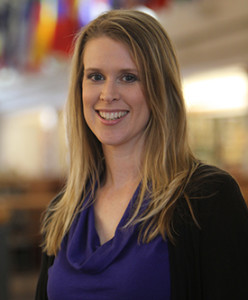

Emily Buckmaster, interim director of the Office of Career Planning & Development at Drury University, has seen her share of students fretting about life after college.
She hopes to ease that stress by providing resources to prepare students for their futures. The main goal of her office “is to integrate individual career development within the academic environment and to provide a connection to the world of work,” according to the Drury website.
It doesn’t matter where students are along their college path; they need to start thinking about how to make the job-hunting process easier, Buckmaster says.
She gives five steps to assist students in the job-hunting process while in college.
Step 1: Start exploring early
It’s important to keep an eye out for activities and classes that sound interesting. Starting this process early will allow students to try out different subjects and clubs so that it is easier to decide on a career path later on.
Once students have a list of appealing interests and activities, Buckmaster recommends that students narrow the field.
“You don’t want to do too much and not have a good experience,” Buckmaster says. “But you don’t want to focus on only one where you’re not broadening your horizons.”
Sticking with a few organizations, clubs, or other activities can allow students to take leadership positions, which will stand out on a résumé for hiring managers.
Step 2: Build your résumé
In addition to having a professional résumé for job interviews, Buckmaster advises students to create a two- or three-page master résumé listing all activities, volunteer experience, and other skills. This way, students can pick and choose what they believe is the most relevant and important information for a potential employer.
Depending upon the employer, different sections of a résumé may interest interviewers during job interviews.
“A lot of times, students think just because they haven’t had a real job, they don’t have anything to put on their résumé. Or maybe they’ve been in sports and haven’t had time to work,” Buckmaster says.
In addition to part-time jobs, Buckmaster also listed other components students could include: volunteer experience, internships, honors and awards, campus activities, skills, leadership positions, and research projects/papers.
Step 3: Take advantage of resources
The Office of Career Planning & Development offers dozens of resources for students to brush up on their professional skills; it is more than just a place to learn résumé writing, Buckmaster says.
“Most people think of us as just general prep as far as resumes and cover letters…anything to do with the job search,” she says.
Other resources include mock interviews, assistance with internship/job applications, online assessments about potential career paths based on interests, and different modules about job-hunting.
“We also help students still deciding on their major or who may have a change of heart or just want some confirmation that the thing they chose is the right thing,” Buckmaster says.
Step 4: Network, network, network
According to Buckmaster, taking a proactive approach to the job search process is vital.
“Networking is the No. 1 way to find a job,” Buckmaster said.
Several departments at Drury have pushed for students to create professional networking profiles on websites such as LinkedIn.
“LinkedIn has really blown up within the past few years,” Buckmaster said. “We even recommend freshmen start getting familiar with LinkedIn and building their network.”
Another networking opportunity for students includes a job fair held every February where over 150 employers of different companies attend. Drury and four other colleges in the Springfield, Missouri, area even offer free shuttles for students.
Buckmaster also encourages students to investigate connections online and reach out to alumni of their specific college. Don’t just fill out an application on line. Connect with organizations and individuals to build networks, she advises.
Step 5: Follow up, and be patient
Following up with organizations and individuals students have connected with through networking is an important step. Students need to stay on the radars of hiring managers by continuing to reach out and being persistent.
“It comes back to networking and being proactive in that job-search process,” Buckmaster says.
Students should also keep in mind that starting a career less than a month after graduating from college is not the norm. The average time it takes for students to get a full-time job relating to their major takes about half a year, Buckmaster says.
“Knowing that it can take about six months is important. Students sometimes don’t realize that it can take a little bit to find a position.” — Emily Buckmaster, interim director, Drury’s Office of Career Planning & Development